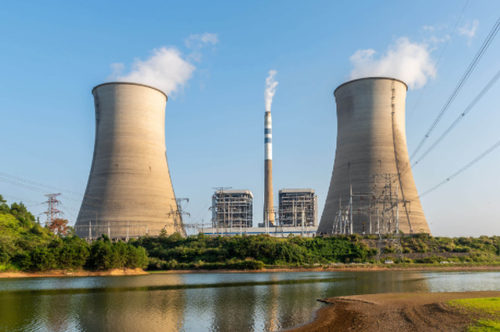Germany Should Postpone Exit From Nuclear Power, Letter From Prominent Professors And Environmentalists Argues
A newly penned letter to the FT, signed by professors from Oxford, Harvard and American University alongside a group of environmentalists, is urging that Germany postpone its exit from nuclear energy for benefit of the environment.
Noting that many Germans aren’t happy with the job politicians are doing addressing climate change, the letter notes that Germany’s “emissions are rising sharply again, at a time when they need to be falling fast”.
Emissions in 2021 “are forecast to stand at only 37 per cent below the 1990 baseline level, still 3 per cent short of the 2020 target of a 40 per cent reduction (which has in effect been missed),” the letter says.
The country’s next goal of a 65% cut by 2030 is in “serious jeopardy”, it argues.
The letter then notes that Germany “is not taking full advantage of all possibilities” and that it is shutting down nuclear reactors two decades ahead of when it needs to. These nuclear reactors produce “8 gigawatts of low-carbon power generation, presently meeting 10 per cent of national daytime demand”.
The letter urges the postponement of shutting down these reactors, as other types of renewables come online in the interim. The letter forcefully concludes:
There is still time to set matters straight. Germany could yet alter course and adjust its order of priority to exit coal before nuclear. All it would take is the stroke of a pen to reinstate the former life extensions, agreed in 2010, to the plants to between 2030 and 2036.
Is any politician brave enough to implement this concrete change that would unequivocally make a positive impact upon emissions, at what is a critical moment in the climate crisis? This emergency action — a postponement of the nuclear exit, not a cancellation — would rightfully earn the respect of the younger generation.
Recall, just days ago we wrote about Poland’s second largest energy consumer considering a move to small modular reactors to help generate energy.
Noting that finding cheaper and greener sources of energy was in Poland’s “national interest”, KGHM’s CEO Marcin Chludzinski said the company would be building four small modular reactors for alternative energy. Each reactor would have a capacity of 77MW.
Days prior to that, we added to our ongoing case for uranium by posting about how crypto miners were starting to forge partnerships with nuclear power plants to combat the “bitcoin is not good for the environment” argument.
Tyler Durden
Fri, 10/01/2021 – 05:45
via ZeroHedge News https://ift.tt/3D1vUTF Tyler Durden
